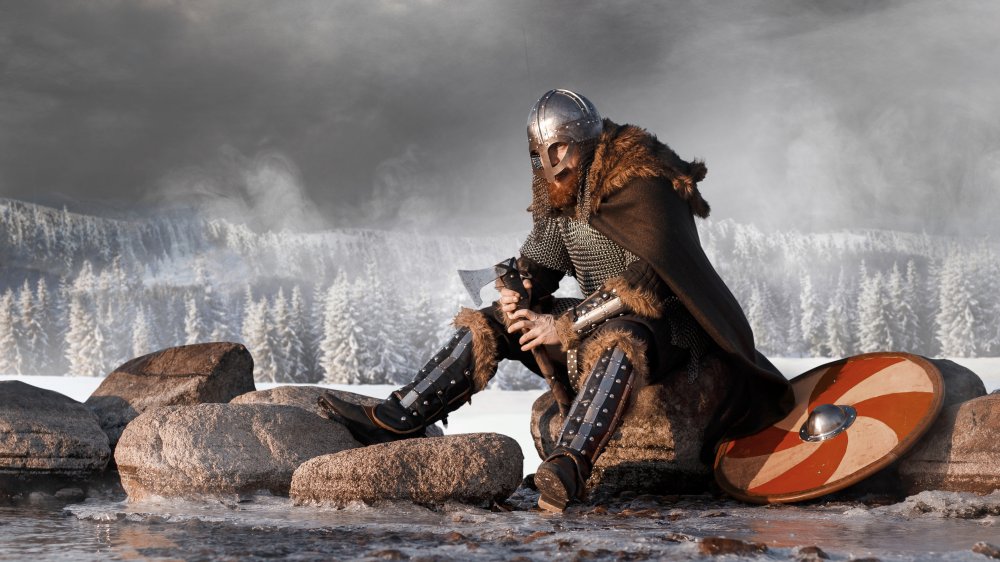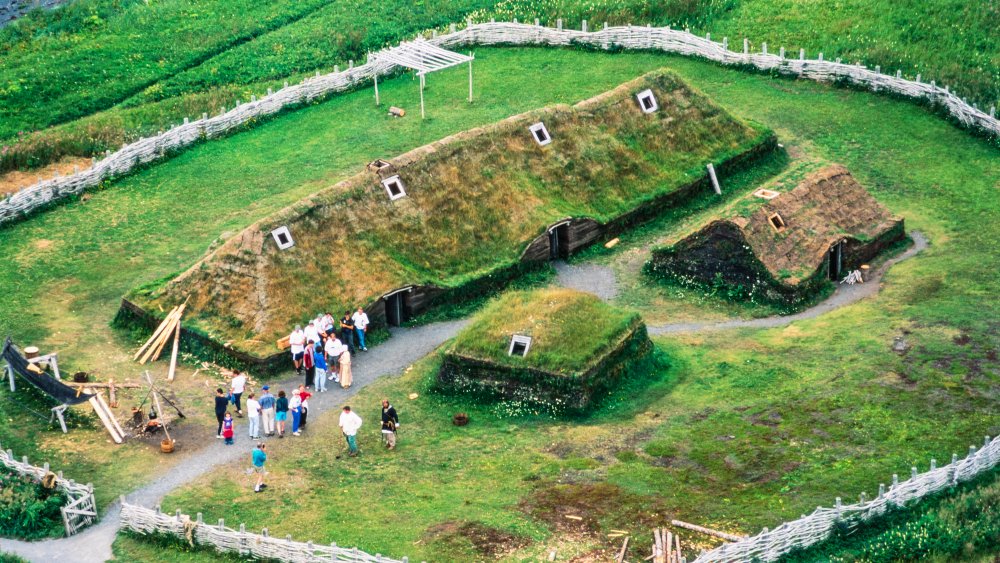The Truth About Who Actually Discovered America
When asking who discovered America, "who" means which group of human beings. In the absence of some kind of documentary proof, archaeologists make the educated guess that humans wandered into North America by way of Asia sometime within the last 25,000 years, according to Smithsonian. Michael Bawaya, then editor of American Archaeology, told Voice of America a couple of years back that it happened "no later than about 15,000 years ago." What's now the Bering Strait was a perfectly useful land bridge, enabling migration from Siberia. Exactly when is hotly debated, with arguments and evidence and surmises continuing to appear in the academic landscape.
Whoever crossed the finish line first, those were the people encountered by various explorers. Legends abound. Archaeology, again, offers wonderful insights. Most assuredly, it wasn't Christopher Columbus, who sailed the ocean blue in 1492. Nor was it Italian explorer Amerigo Vespucci, whose name became attached to the lands — despite showing up even later than Columbus, per LiveScience. Neither were the ones to figure out that the planet was round, either; that was common knowledge since at least the third century BCE, according to History.
A Viking settlement has been discovered at L'Anse aux Meadows, Newfoundland, Canada
One way to look at it is: Rather than discovering America, who introduced Europe to America? Legends include Portuguese sailors in the early 15th Century, proposed by eminent naval historian Samuel Eliot Morison, as reported by American Heritage. Another legend — and it is, at best, a legend — is that St. Brendan, an Irish monk, made the trip in the sixth century, NPR tells us. The man is historical fact; his voyage of discovery, probably not, although writer Tim Severin set out in 1976 to replicate the journey and succeeded, making safe landfall in Canada.
Speaking of the Great White North, as Canada is also known, we come now to what is absolutely certain: Viking wayfarers made land and lived in genuinely North America around the year 1000 CE. Led by Leif Erickson, the Vikings established a settlement in Newfoundland. They made the mistake of killing the first Native Americans they met — who were asleep at the time — and relations with the previous inhabitants never really warmed. It didn't help that the Viking word for the Natives, skraelings, meant "wretched people."
In 1960 archaeologists discovered the remains of the Viking settlement at L'Anse aux Meadows. It's now a United Nations World Heritage Site, according to the UK's Independent. It's also quite possible that Vikings wandered further into the area — study continues. Within a few years, the Norse had packed their battle axes and headed back home.

